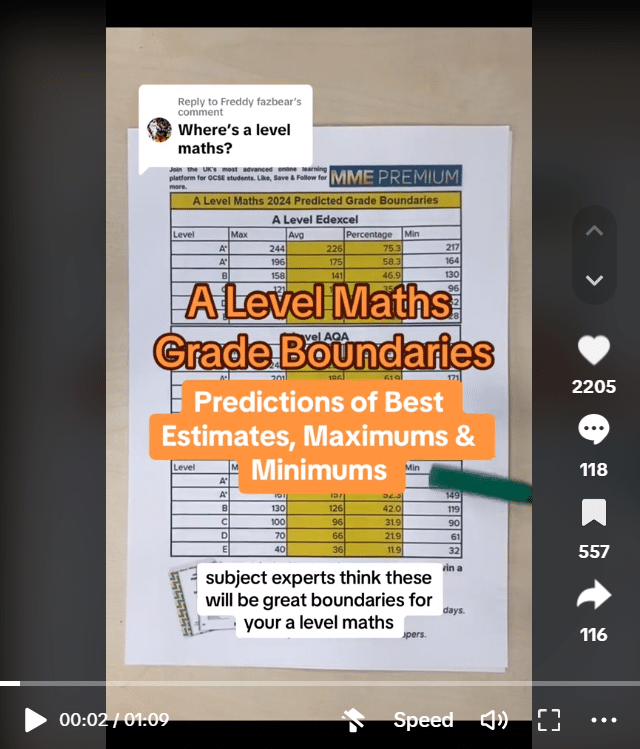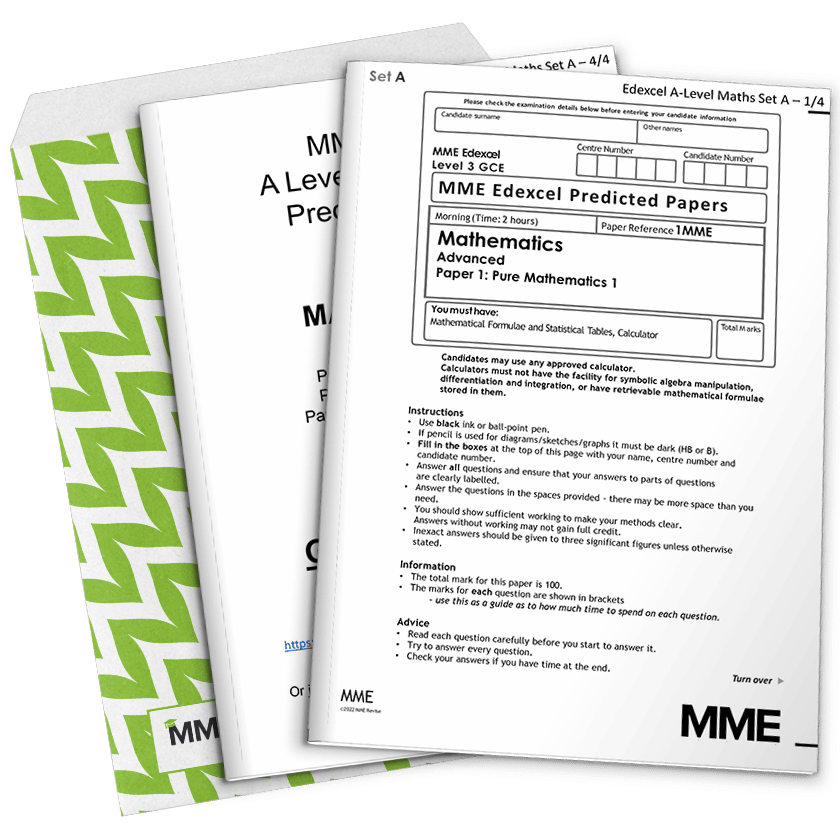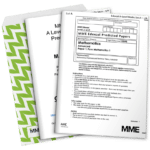Differentiating Exponential Functions
Differentiating Exponential Functions Revision
Differentiating Exponential Functions
In this section, we’ll be looking at how to differentiate equations of the form \textcolor{red}{a}^{\textcolor{orange}{k}\textcolor{blue}{x}}, e^{\textcolor{orange}{k}\textcolor{blue}{x}} and e^{f(\textcolor{blue}{x})}. We’ll also look at the derivative of logarithmic functions.
Make sure you are happy with the following topics before continuing.
Differentiating a^{kx}
We can prove the result by Implicit Differentiation, but we’re not worried about that just yet.
For any real values of \textcolor{red}{a} and \textcolor{orange}{k}, f(\textcolor{blue}{x}) = \textcolor{red}{a}^{\textcolor{orange}{k}\textcolor{blue}{x}} gives
f'(\textcolor{blue}{x}) = \textcolor{orange}{k}\textcolor{red}{a}^{\textcolor{orange}{k}\textcolor{blue}{x}}\ln \textcolor{red}{a}
Differentiating e^{kx}
e^{x} differentiates to itself.
\dfrac{d}{dx}(e^{x})=e^{x}
For f(\textcolor{blue}{x}) = e^{\textcolor{orange}{k}\textcolor{blue}{x}} with real values of \textcolor{orange}{k}, the derivative is given by
f'(\textcolor{blue}{x}) = \textcolor{orange}{k}e^{\textcolor{orange}{k}\textcolor{blue}{x}}
This is actually an extension of the last definition. Set \textcolor{red}{a} = e, to give f'(\textcolor{blue}{x}) = \textcolor{orange}{k}e^{\textcolor{orange}{k}\textcolor{blue}{x}}\ln e.
\ln e = 1, so this part cancels from the expression to give the correct result.
Differentiating e^{f(x)}
By extension, we can use the Chain Rule to determine the derivative here.
So, set \textcolor{red}{u} = f(\textcolor{blue}{x}) and \textcolor{limegreen}{y} = e^\textcolor{red}{u} = e^{f(\textcolor{blue}{x})}.
Then we have
\dfrac{d\textcolor{red}{u}}{d\textcolor{blue}{x}} = f'(\textcolor{blue}{x}) and \dfrac{d\textcolor{limegreen}{y}}{d\textcolor{red}{u}} = e^\textcolor{red}{u}
By using the Chain Rule, we can see that
\dfrac{d\textcolor{limegreen}{y}}{d\textcolor{blue}{x}} = \dfrac{d\textcolor{limegreen}{y}}{d\textcolor{red}{u}} \times \dfrac{d\textcolor{red}{u}}{d\textcolor{blue}{x}}
= f'(\textcolor{blue}{x})e^{f(\textcolor{blue}{x})}
Differentiating \ln x
This one requires a little trick, but the result is pretty obvious once proven.
Begin with \textcolor{limegreen}{y} = \ln \textcolor{blue}{x}, and rearrange to get e^\textcolor{limegreen}{y} = \textcolor{blue}{x}.
We have \dfrac{d\textcolor{blue}{x}}{d\textcolor{limegreen}{y}} = e^\textcolor{limegreen}{y} = \textcolor{blue}{x}, by extension.
So, by finding the reciprocal, we have
\dfrac{d\textcolor{limegreen}{y}}{d\textcolor{blue}{x}} = \dfrac{1}{\textcolor{blue}{x}}
Furthermore, we can use the chain rule to get a general expression for the derivative of ln(f(x)).
\dfrac{d}{dx}(ln(f(x)))=\dfrac{f'(x)}{f(x)}
Example: Differentiating \ln(f(x))
Find the derivative of \ln(x^{2}+3x-8)
[2 marks]
Recall the formula:
\dfrac{d}{dx}(\ln(f(x)))=\dfrac{f'(x)}{f(x)}
In this example: f(x)=x^{2}+3x-8, so f'(x)=2x+3.
Hence, our answer is \dfrac{2x+3}{x^{2}+3x-8}
Differentiating Exponential Functions Example Questions
Question 1: Find an equation for the tangent to the curve y = 3^{2x} at the point (1, 9).
[4 marks]
For y = 3^{2x}, we have
\dfrac{dy}{dx} = 2 \times 3^{2x}\ln 3
= 9\ln9 \equiv 19.775 when x = 1
Then, the straight line equation of the tangent y = mx + c is given by
9 = 19.775 + c
meaning
c = -10.775
So, the equation of the tangent line is
y = 19.775x - 10.775
Question 2: For f(x) = e^{x^2 - 3x + 1}, find the derivative with respect to x.
[3 marks]
Setting u = x^2 - 3x + 1 and g(u) = e^u, and using the chain rule, we have
f'(x) = g'(u) \times u'
= e^u \times (2x - 3)
= (2x - 3)e^{x^2 - 3x + 1}
Question 3: Find the derivative with respect to x for the function y = \ln (x^3 + x - 3).
[4 marks]
Set u = x^3 + x - 3 and y = \ln u, and use the chain rule:
\dfrac{du}{dx} = 3x^2 + 1
and
\dfrac{dy}{du} = \dfrac{1}{u}
Therefore, we have
\dfrac{dy}{dx} = (3x^2 + 1)\dfrac{1}{x^3 + x - 3} = \dfrac{3x^2 + 1}{x^3 + x - 3}
Differentiating Exponential Functions Worksheet and Example Questions
Differentiation
A LevelYou May Also Like...

MME Learning Portal
Online exams, practice questions and revision videos for every GCSE level 9-1 topic! No fees, no trial period, just totally free access to the UK’s best GCSE maths revision platform.






